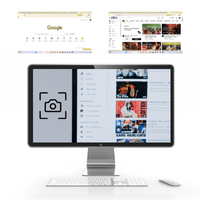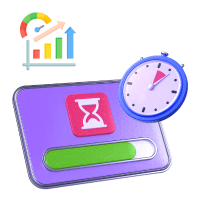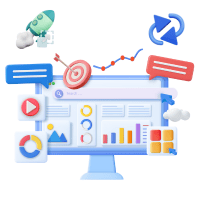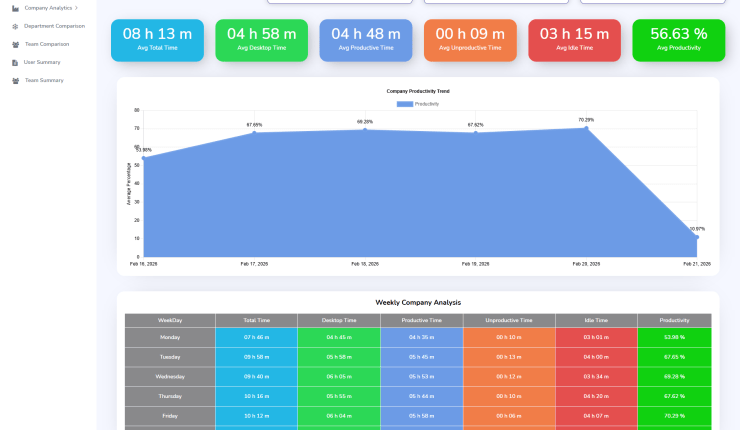Are you looking for the best productivity tips for small businesses? Then you are on the right page. If you are running a small business or start-up, then you would want to get productivity hikes as soon as possible, and would want your employees to be efficient enough to achieve goals as per your expectations. However, what about the process to get there?
Did you know that 72% of small businesses fail within the first 5 years? That’s because they don’t know how to boost efficiency and stay productive. You focus on increasing productivity. However, without knowing the proper techniques to do so, you will fail to achieve your goals.
So in this blog, we will take a look at why small business owners aren’t productive enough. Plus, we will give you 15 of the best productivity tips for small businesses, which you can immediately implement. So let’s get started.
What are the Reasons Small Businesses Aren’t Productive?
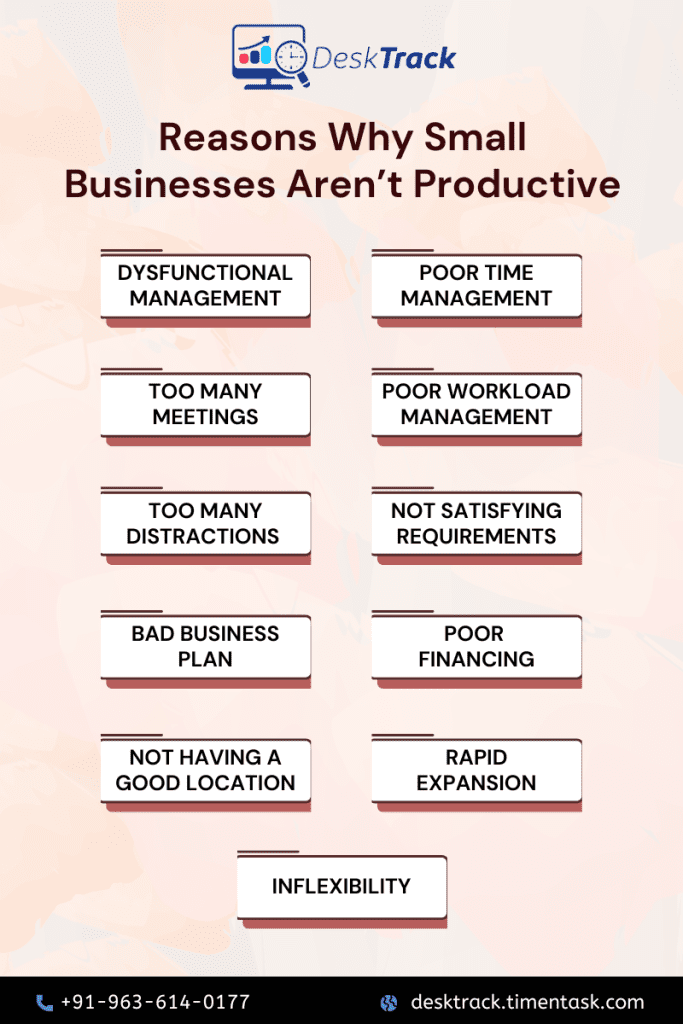
As we mentioned before, most of the new small businesses and startups fail within the first 5 years. Either they don’t have the right tools and technologies, or they don’t know the proper strategies to boost productivity. Moreover, here are 5 reasons why we think small business owners’ employees don’t stay productive.
1. Dysfunctional Management
One of the reasons business owners need productivity tips for small businesses is because of dysfunctional management. What small enterprises do is cut a lot of budgets they think are not necessary. As a result, they end up in a situation where one person has to do almost everything themselves, leading to burnout, quitting, and stress. Here, you can:
- Distribute tasks.
- Have ample time for yourself to perform all the work that only you can do.
- Have a budget for hiring new staff.
- Don’t cut too many budgets.
- If you have to reduce expenses, ensure that they don’t affect your business functioning.
2. Poor Time Management
Time is the most important asset for everyone, including small businesses. Every business and employee has limited work hours for the day. Moreover, no one wants to do overtime unless necessary. On the other hand, small businesses fail to understand proper time and resource management and incur losses in the form of:
- Too many expenses
- Incomplete projects
- Lost clients
- Employee burnout, stress, and inefficiency.
Read Also: Top 15 Employee Time Recording Software & Apps in 2025
3. Too Many Meetings
Meetings are good. However, too many of them can reduce productivity as they take most of your workday, leaving fewer work hours for other important tasks. The result is forced overtime, and thus more and more employees resign, which is never good for productivity. The reasons for multiple meetings and why you need productivity tips for small businesses can be.
- Some of the teams are not available at the meeting time.
- Multiple points or agendas of concern.
- Too complex a task/event to understand in a single meeting.
Overall, it’s up to the management to understand this and calculate the no. of meetings required.
4. Poor Workload Management
Another reason why small enterprise owners fail to stay productive is poor workload management. The rule of thumb is that any employee should neither be overworked nor underutilized. In both cases, productivity will decrease. Here’s why?
- In case of employee underutilization:
- Employees will get bored and waste time.
- Employees will procrastinate thinking about why they aren’t getting any more tasks.
- The employee will finish their tasks on or before time and wants to go home. Keeping him/her any longer will result in resignation.
- It results in poor resource management.
- In the case of an overworked employee:
- Your employee will quit due to burnout and stress.
- It will result in a poor work-life balance.
- It will affect your employees’ mental health.
- Your employee will begin multitasking, which will lead to incomplete tasks and projects. Overall, meeting the deadline will become impossible.
5. Too Many Distractions
Too many distractions in the workplace, including office gossip, meeting interruptions, outside window noise, and noise from snacking colleagues, can also decrease employee productivity. Overall, avoiding these distractions is a challenge, and that’s why you need productivity tips for small businesses for a distraction-free workplace.
6. Not Satisfying Requirements
The next reason most small businesses fail is related to employees as well as customers. It’s essential to satisfy customer needs to be consistently productive is the truth that you can’t deny.
However, these days, it’s crucial to continuously research the market to ensure that all customer requirements are met.
Otherwise, you will lose your consumer base and eventually fail. Similarly, it’s also important not to neglect your employees’ work-life balance and other needs. After all, you need them to satisfy customers. Overall, failing at either end will result in significant unproductivity.
7. Bad Business Plan
According to our experience, businesses that start well continue to get better and better. However, to start well, you need a good business plan. Perfect strategizing is the key. Simply put, businesses that fail at this step will never be productive. Thankfully, we have the best productivity tips for small businesses for you.
8. Poor Financing
To be productive in a business, you also need a good investment. It is essential to have a good infrastructure, the latest technology, and software solutions, like time tracking software, ample resources, and well-paid employees as a starting point. Simply put, businesses that lack financing at this point will not even start, let alone be productive.
9. Not Having a Good Location
Another productivity tip for small businesses is to start at a good location and have a strong social media presence. This is essential for attracting more and more customers to your products and services. However, businesses that are operating in a desert or from a location where it’s hard for customers to reach will have a hard time racking up the much-deserved productivity.
10. Inflexibility
You know how the market demands and customer requirements have become ever-changing these days. Thus, it is essential for businesses to continuously research and change strategies to match needs. However, if you fail to change your business plan when required, you can forget about productivity.
11. Rapid Expansion
Indeed, your small business won’t be small forever. You need to expand. However, if you do it rapidly without thinking about plans and strategies, there will be no real growth. So, the productivity tip for small businesses here is to:
- Expand your business when the time is right.
- Strategize properly.
- Prepare your employees in advance for the changes.
Which are the Best Productivity Tips for Small Business Owners?
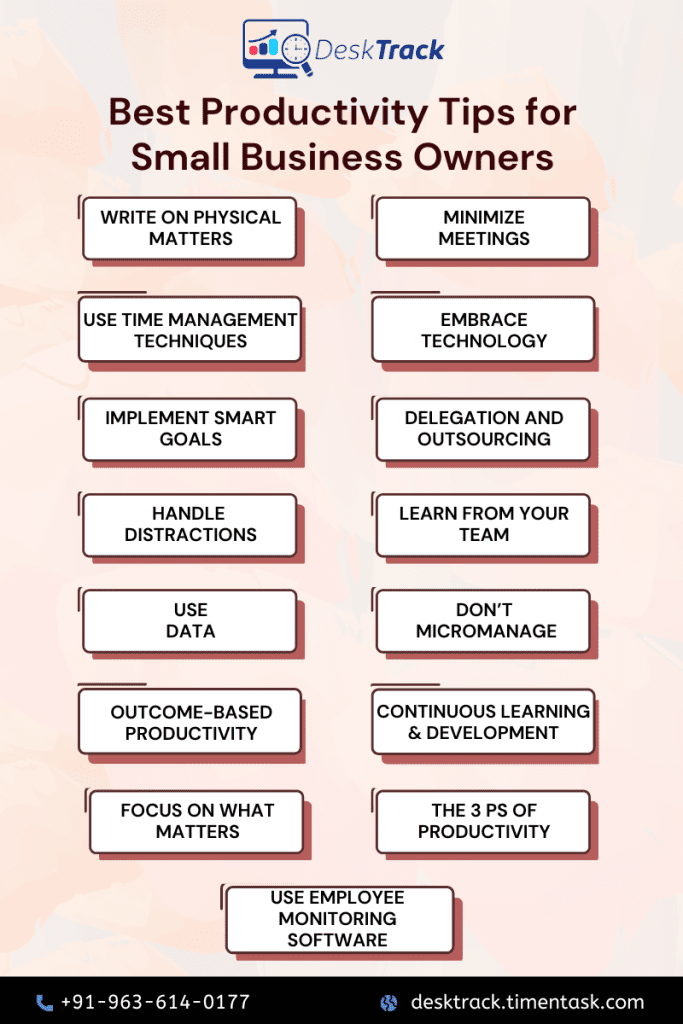
So now we know why small enterprises fail to stay productive. However, what are the ways for them to stay on track and keep boosting productivity and profitability? Well, no need to worry as we have shortlisted the 15 best practical strategies that you can implement right away for success.
1. Write On Physical Matters
Productivity monitoring software is an effective way to identify and boost productivity levels. However, it’s limited to a digital solution. Instead, a better alternative is to write on physical surfaces while using your productivity tracker tool, such as:
- Walls of your office.
- Post its
- A big piece of paper.
The point behind this productivity tip for small businesses is to give your teams and employees a broader view of how tasks look. This, in return, results in:
- Streamlined workflows
- Increased efficiency
- Increased productivity
2. Minimize Meetings
As we mentioned before, meetings take up most of your time, leaving fewer work hours for the tasks that matter. Meetings divide your workday and make you lose focus on on-hand tasks. Overall, it becomes hard to focus on work and increase productivity. So the strategy here is to minimize meetings. Here’s how.
- Try to take meetings when every team is available.
- Try to simplify each point of concern, task, or event, making it easier to resolve in fewer meetings.
3. Use Time Management Techniques
One of the most commonly used productivity tips for small businesses is improving time management. Remember that time management is not all about crossing things off checklists. Rather, it’s the way to get quality work done within the limited time you have.
In short, properly managing your time is the core of boosting productivity. However, how can we improve time management? Below, we have shortlisted 2 tried and tested strategies.
3.1 Prioritization
It’s very simple. All you have to do is prioritize tasks to focus on what matters the most. One way is to use the Eisenhower Matrix, which divides tasks according to urgency and importance. Another technique is the Pareto Principle, which claims that 80% of outcomes are achieved from 20% of performed actions. Again, this strategy helps you concentrate on higher-priority tasks.
3.2 Time-Blocking
This productivity tip for small businesses involves allocating specific parts of your workday to particular tasks. Overall, it helps you stay on track while prioritizing the most important work. To optimize time-blocking, we recommend using employee monitoring software and calendars.
4. Embrace Technology
Of course, we are living in a technology-oriented and data-driven work world. Thus, you can’t avoid using technology in one way or another. What we recommend here is to use tools to improve productivity and enhance efficiency. For instance:
- Online scheduling software, tools, and/or assistants help you automate schedules for your employees. Overall, this reduces the administrative burden.
- Communication tools help your diverse remote, in-office, and on-site teams stay connected.
- Chatbots provide solutions to problems. For example, removing errors and bugs for programmers.
Read Also: Time Tracking Software vs. Employee Monitoring Software: Which One Do You Need?
5. Implement SMART Goals
The next productivity tip for small businesses on our list is the standard of goal setting. It defines how your objectives must be for your employees. However, what does SMART mean here? Let’s get right into it.
- S stands for specific. It means that the objectives must be clear to your employees.
- M stands for measurable. It means that the task must have some level of accomplishment. It is so that you can measure the expected vs the achieved outcome.
- A is achievable. It means that your expected results must be practical. For example, you can’t expect your coding team to code an entire software in a single workday.
- R is realistic, which is exactly as it sounds. For example, you can’t expect your content writer to also design web pages.
- T is timely. It means that your objectives must have a definite time limit. All your goals must be completed within this time.
6. Delegation and Outsourcing
Remember, you can’t do every task yourself. That’s why there are teams. Now, you might consider delegation as a way to offload work. However, it’s one of the best strategies to increase efficiency and productivity.
Here, the idea is to multiply the work you can achieve while having time for the activities, which only you can do. Overall, delegation by hiring or outsourcing helps you expand your capabilities and increase productivity without overtime. As per this productivity tip for small businesses, you must delegate time-intensive, out-of-your-capabilities, and repetitive tasks. For instance:
- Administrative tasks
- Email management
- Scheduling and calendar management
- Data entry and report generation
- Marketing and sales tasks
- Social media management
- Content creation and blogging
- SEO and PPC management
- Operational tasks
- Inventory management
- Order processing and fulfillment
- Bookkeeping and accounting
- Customer service
- Handling customer questions and complaints
- Managing returns and exchanges
- Follow-up calls and satisfaction surveys
7. Handle Distractions
As we mentioned before, workplace distractions hinder productivity a lot. In the case of small businesses, distractions are inevitable. Especially because resources are limited and every second is essential. You can’t eliminate them, so avoiding them is the best alternative. Likewise, procrastination also decreases productivity. Fortunately, you can eliminate procrastination by using these tips.
- Break down big projects.
- Set clear deadlines.
- Use time blocks.
- Eliminate distractions.
- Identify peak time.
- Implement accountability.
- Reward progress, which keeps the momentum going and optimizes workflow.
8. Learn from Your Team
This productivity tip for small businesses involves interacting with your team often. In short, gathering and working on employee feedback increases productivity as you identify and fix work gaps.
Furthermore, it creates a more harmonious work environment because of increased trust. Overall, it shows that you are committed to improving staff welfare and growth.
9. Use Data
Did you know that you will take 50% less time in planning if you have sufficient data? It’s better to use stats, charts, graphs, and figures to strategize than to simply depend on assumptions and what your staff and micromanagers tell you.
A good idea is to use a productivity tracker to monitor employee performance and gain insights into whether they are meeting your expectations or not.
10 Don’t Micromanage
Another productivity tip for small businesses that we recommend implementing right away is to eliminate micromanagement from your organization. Usually, it arises from the need for employees to meet your high work-time utilization and performance expectations.
However, this way, you are only disturbing the mental peace of your employees. So, what’s the alternative? Coach your teams and employees to be more productive. Trust us, it works.
11. Outcome-Based Productivity
How can your teams and employees be more productive if they don’t know what to be productive for? Makes sense. Right? Be transparent about your objectives to your employees without leaking sensitive and/or confidential information. That’s all you have to do to drive exceptional results.
12. Continuous Learning & Development
One of the best productivity tips for businesses is continuous learning and development. This includes:
- Providing ample learning and development opportunities for your employees to grow in their careers and eventually assist you in expanding.
- Learning immediately from your first setback and strategizing to prevent similar issues.
- Adapting to the newest market changes and ever-growing demands.
13. Focus on What Matters
Procrastination and distractions are the biggest obstructions to high productivity. They shift your focus to the unnecessary things and reduce efficiency as well. One simple way is to eliminate multitasking and do one task at a time. Furthermore, you must also delegate work accordingly to balance the workload. Remember that you can’t do everything yourself.
14. The 3 Ps of Productivity
Another essential productivity tip for small businesses is to master the 3 Ps of productivity. That is, planning, prioritization, and performance. Here’s how it works:
- Have a strong but flexible plan on how you will achieve each goal.
- Prioritize work according to employee skills, designation, capacity, and experience. Furthermore, it’s also essential to properly distribute the tasks among the total work hours for more success.
- The above two will lead to a better work performance. Plus, your guidance will keep improving it.
15. Use Employee Monitoring Software
Your employee monitoring software is more than just a computer work surveillance solution. It tracks the work-time utilization and performance efficiency levels of your employees against the various KPIs and metrics you configure in it. That means:
- Accurate data-driven decision-making
- No bias and employee favouritism
- 100% work and employee transparency
Make your workday more productive
Time tracking and work management can help you reach your goals
faster.
Conclusion
Now, we hope that you are clear about productivity tips for small businesses. To conclude, small enterprises often struggle to stay productive because they don’t know the proper way to. However, if they want to eliminate low productivity factors such as poor time management, poor workload management, and dysfunctional management, their best solution is to use expert strategies and tips. These also include using tools such as productivity monitoring software. DeskTrack is the best all-in-one employee monitoring software. With its diverse range of intuitive features, it helps you monitor and boost the productivity of your employees in the simplest way possible.
Frequently Asked Questions (FAQ)
Q. Why Do Small Enterprises Fail to Stay Productive?
Ans. Here are the reasons we think small businesses fail to stay productive.
- Dysfunctional Management
- Poor Time Management
- Too Many Meetings
- Poor Workload Management
- Too Many Distractions
- Not Satisfying Requirements
- Bad Business Plan
- Poor Financing
- Not Having a Good Location
- Inflexibility
- Rapid Expansion
However, using productivity tips for small businesses will ensure that small enterprises boost efficiency and profitability.
Q. What are the 4 Pillars of Productivity?
Ans. Maximizing efficiency at these 4 things, processes, and/or strategies will maximize the productivity of your business.
- Task management
- Prioritization
- Time management
- Focus
Q. What are the 3 P’s of Productivity?
Ans. Achieving high business productivity can be simple if your focus on these 3 is strong:
- Planning
- Prioritizing
- Performance
Q. What is a Productivity Tip?
Ans. A productivity tip is a simple and easy-to-apply trick to improve productivity. In the case of small businesses, these are simple strategies that help them stay efficient and profitable.
Q. How Will You Ensure that Your Small Business is Productive?
Ans. Here are some productivity tips for small businesses, which you can implement straight away.
- Write On Physical Matters
- Minimize Meetings
- Use Time Management Techniques
- Embrace Technology
- Implement SMART Goals
- Delegation and Outsourcing
- Handle Distractions
- Learn from Your Team
Q. What are the 5 Most Commonly Used Productivity Tools?
Ans. Commonly, businesses worldwide use these 5 productivity tools.
- Calendar apps
- AI scheduling apps
- Note-taking apps
- To-do list apps
- Habit tracker apps









